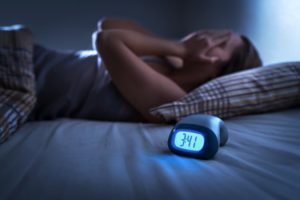 According to the American Sleep Apnea Association, 22 million Americans suffer from sleep apnea. While the TMJ jaw disorder is a vastly different condition, the two are surprisingly connected. If you suffer from either disorder, it’s important to know what additional health risks they bring. Learn how sleep apnea in Columbus is linked to TMJ disorder and how you can treat your medical issues.
According to the American Sleep Apnea Association, 22 million Americans suffer from sleep apnea. While the TMJ jaw disorder is a vastly different condition, the two are surprisingly connected. If you suffer from either disorder, it’s important to know what additional health risks they bring. Learn how sleep apnea in Columbus is linked to TMJ disorder and how you can treat your medical issues.
What is Sleep Apnea?
Sleep apnea is the second most prominent sleep disorder in the country, behind insomnia. If you suffer from sleep apnea, you will frequently stop breathing for brief periods of time as you sleep. Your body will react by partially waking up in order to restore normal breathing. This cycle can occur numerous times during the night without you ever realizing it.
Sleep apnea prevents you from completing an entire sleep cycle. Common symptoms include:
- Loud and chronic snoring
- Waking up gasping for air or feeling out of breath
- Morning headaches and sore throat or dry mouth
- Sever daytime fatigue despite number of hours slept
- High blood pressure
What is TMJ Disorder?
TMJ disorder concerns the temporomandibular joint in your jaw. This joint (with one on each side of your jaw) acts like a sliding hinge and connects your jawbone to your skull. The cause of TMJ disorder is actually undetermined but dentists believe symptoms arise from problems with the muscles of your jaw or with the joint itself. The condition can cause pain in your jaw joints, face, ears and the muscles that control jaw movement. You can have difficulty chewing and might hear a clicking sound when you open your mouth.
What’s the Connection?
Factors associated with sleep apnea can contribute to TMJ disorder and vice versa. A misaligned jaw can cause airway blockage during rest, which in turn can set your nerves on edge and contribute to jaw grinding. TMJ disorder can be developed because the body constantly pushes the lower jaw forward to open up the airway blocked due to sleep apnea. TMJ disorder is also linked with chronic fatigue syndrome, which can exacerbate sleep apnea.
If you believe you suffer from either (or both) conditions, reach out to your medical professional immediately. In the meantime, limit nighttime snacks, stay active and switch your sleeping positions to try to relieve yourself from some of the symptoms. You may also benefit from meditation or systemic relaxation.
About the Author
Dr. Eric Buck is passionate about helping his patients achieve beautiful smiles and feel well rested. He is a member of the American Academy of Dental Sleep Medicine. If you have further questions about sleep apnea, he can be reached through his website or at 614-956-9305.
